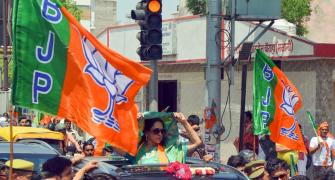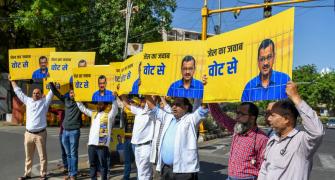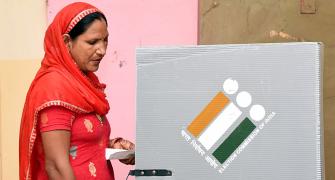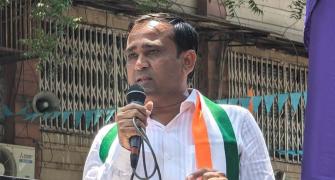All are correct, but what makes the industry truly unique is that the regulator wants the industry, for a very long time to come, to be the exclusive preserve of existing players - sure, new players can come in but, like Vodafone, they can do so only after paying a king's ransom to the existing player whose place they take.
This was the import of a recommendation made by the Telecom Regulatory Authority of India on 3G spectrum last September but, thankfully, the then Telecom Minister Dayanidhi Maran chose to ignore it and said he'd invite new players into the field. Now that Maran's been asked to go, the industry's making one valiant attempt to win over his successor into accepting Trai's recommendations in toto.
Trai's recommendations, of course, were amazing and, presumably, Maran saw through the inconsistencies in them. While the mobile phone firms argued that 3G services (which allow vastly superior services to be offered wirelessly, including internet data speeds of at least 144 kbps) should be given to them without a one-time entry fee as they were just an extension of their existing 2G licences, Trai rejected this.
It said 3G was a new service and so it should be auctioned. But if it was a new service, how did Trai arrive at the conclusion that the auction should be limited to just the existing mobile phone players- that's both the GSM-cellular lot as well as the CDMA-lot (also called the Unified Access Service Licence, or UASL holders) like Reliance Communications and the Tatas?
If after these players got their spectrum, some more was left, newcomers could be called in.
It's perhaps best to quote Trai here since the logic is difficult to comprehend. After saying even "non-telecom companies and even non-Indian telecom companies seem to be potential candidates for offering 3G services in India", TRAI changed tack one sentence later and said, "however, the claims of the existing UASL and CMSP (cellular mobile) licensees for prioritization cannot be dismissed as they have invested in the infrastructure and their systems are in place to efficiently deliver 3G services at lower incremental cost. This will enable faster rollout of 3G services and help in achieving the objective of affordability."
This is truly bizarre. For one, all the investments made were with a view to service the growing market for 2G voice services since there was nothing in the licence that suggested that 3G spectrum, and later 4G or even 5G spectrum, would automatically be given to these mobile phone firms.
In any case, going by the superb bottom line and market valuations of these companies, it's obvious the huge investments have paid back several times over. As for the argument that tariffs go up once new players come in, after Bharti Airtel got the fourth cellular licence and invested billions of dollars in new networks, telecom tariffs have only come down!
Ironically, while Trai's order gives all manner of details of the 3G auctioning process in other countries, including the final bid prices, it omits details as to whether others also tried to keep out new players - in Europe, several firms that won the 3G auctions, such as Hutch, were not existing 2G players.
The way Trai has worded its recommendations, of course, complicates things even more, and allows room for a fair degree of discretion. It has said that existing licensed players only should be allowed to bid - but what if a firm, whether Indian or foreign, is irrelevant, decides to apply for a UASL today? It then becomes an existing licensed player and can bid, can't it?
Theoretically then, if Sprint wants to come in to the 3G space, it can just apply for a UASL, pay the licence fee, which is already specified for each telecom circle, and then bid for 3G services.
But this is clearly not what Trai wants, since it makes a distinction between players who have invested money and have 2G networks and those that don't. Which means the UASL will not be given freely to everyone that applies for it. But how is this exclusion to be decided?
One possibility is the lack of 2G spectrum- if there is an acute shortage of 2G spectrum, as there is right now and has been for a long time, then new players will not be given the UASL. The problem is that several players have been given the UASL even when there is no spectrum to give them- the DoT's website lists Aircel as a UAS licensee for Delhi, for instance, but the firm does not operate in Delhi; both Aircel and Idea are listed as licensees for Mumbai by the DoT though neither has operations there; ditto for Aircel in Maharashtra and Karnataka, the list goes on.
So, if some firms can get UAS/GSM licences despite there not being enough spectrum at the time of issuing the licence, how can others not be given the same licences when they apply- the licence which, Trai insists, should be the passport allowing entry into the 3G auction.
In which case, all schemes which try and restrict the number of bidders appear headed straight to the courts. And that can't be good news either for the telecom industry or for a minister whose competence is to be judged by the way the industry grows in his tenure.








